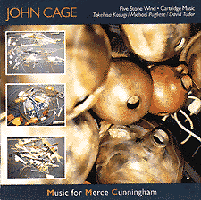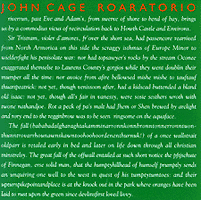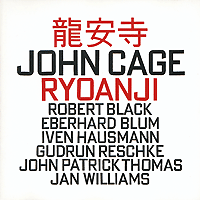John Cage was certainly one of the few artist of the twentieth century to have proposed a fundamentally inovative music, placed under a multiform and meddlesome curiosity, in particular in his collaboration with choreographer Merce Cunningham. After studying with Schoenberg in the Thirties, he very early showed interest into Eastern sounds and moved away from the prevalent atonal music’s dullness of that time. John Cage gradually developped, along with artists like David Tudor, a musical philosophy dealing more with processes than linearity, playing with chance operation, indeterminacy and giving free scope to musicians. In the continuity of Duchamps or Satie, influenced by Zen Buddhism, in a constant will to break with sound matters, Cage used electronic amplification, silence, voices and the superimposition of sources. Today he still is considered as an unavoidable phonoclast.




Works for percussion
Wergo - WER 6203-2
& Takehisa Kosugi
& Michael Pugliese
Music for Merce Cunningham
Mode Records - 24
Roaratorio
Mode Records - 28-29
• Roaratorio: An Irish Circus on Finnegans Wake-Part1.mp3
• Roaratorio: An Irish Circus on Finnegans Wake-Part4.mp3
• Writing for the Second Time through Finnegans Wake-Part1.mp3
• Writing for the Second Time through Finnegans Wake-Part4.mp3
Ryoanji
Hat Hut Records - NOW series -
Hat ART CD 6183